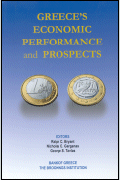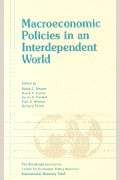MEDIA SUMMARY
Greece’s problems damaging lender institutions
Yet further debt restructuring will still be necessary
There has been a serial misdiagnosis and underestimating of Greek debt sustainability by lenders, and their policies toward Greece are unsustainable and have damaged creditor institutions. In “Diagnosing Greek debt sustainability: Why is it so hard?” Julian Schumacher and Beatrice Weder di Mauro of the University of Mainz find that the International Monetary Fund (IMF) and the European Stability Mechanism (ESM) have become inappropriate for Greece since they ignore the highly concessional terms of Greek debt and their repeated accommodations have left the overall sound lending framework severely weakened. And yet, despite the extraordinary amount of private and public debt relief Greece has already received, including the granting of exemptions by creditors to their typically sound lending rules (34 times thus far), further debt restructuring will still be necessary. Repayment of loans to European institutions now could extend over several decades (past the 2054 terms in place), which may be problematic if political constellations change. Eurozone partner countries should consider some scheme akin to the Highly Indebted Poor Countries (HIPC) process, where multilateral debt forgiveness was granted after an extended period of good policy track record.
The Brookings Institution is committed to quality, independence, and impact.
We are supported by a diverse array of funders. In line with our values and policies, each Brookings publication represents the sole views of its author(s).








